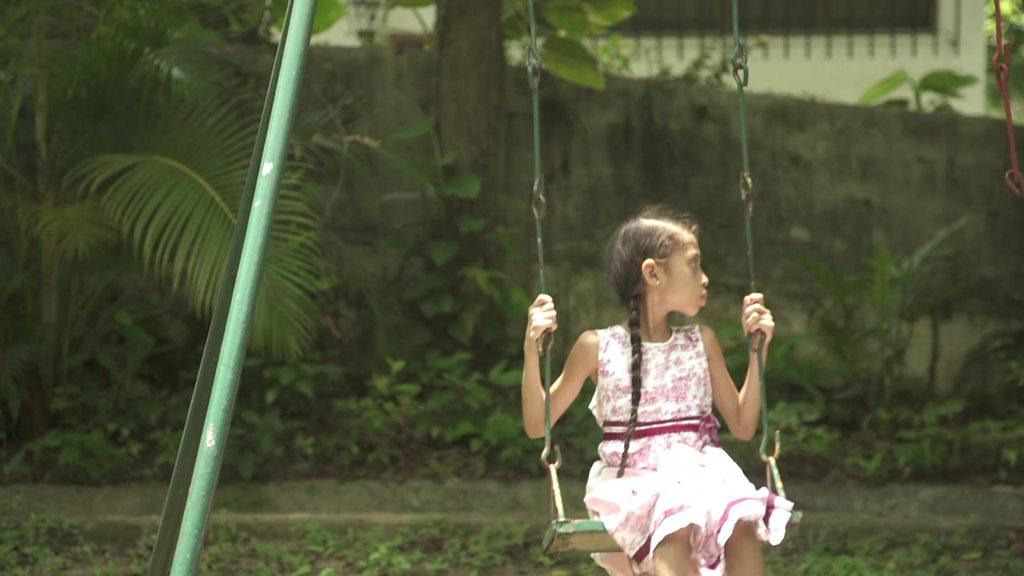'My baby would have died if I had stayed in Venezuela'
- Published
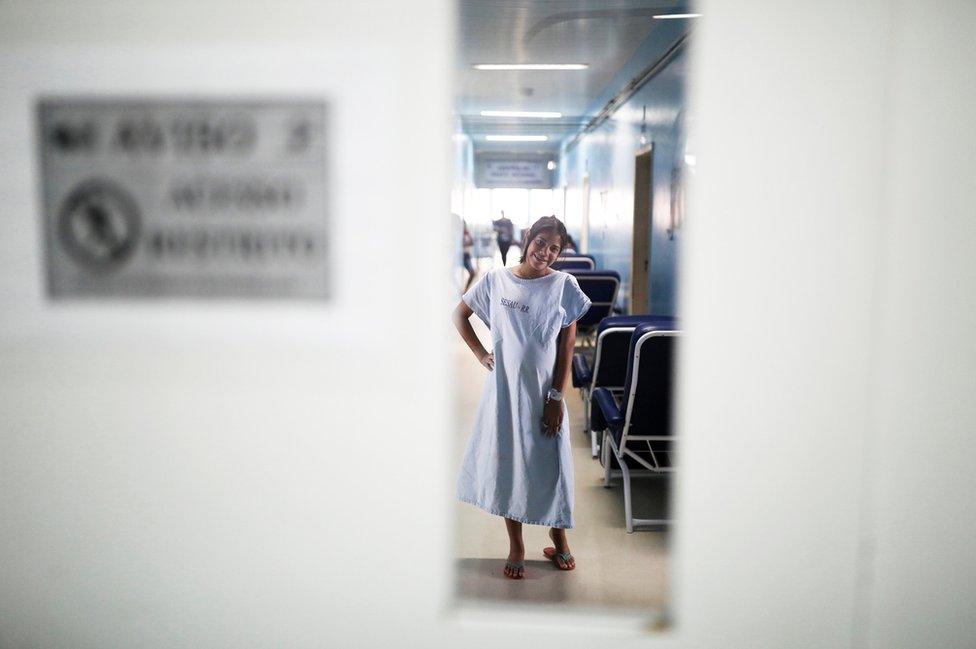
Births of Venezuelan babies at the maternity hospital in the Brazilian city of Boa Vista have surged as Venezuelan mothers increasingly leave their home country to give birth in the neighbouring country.
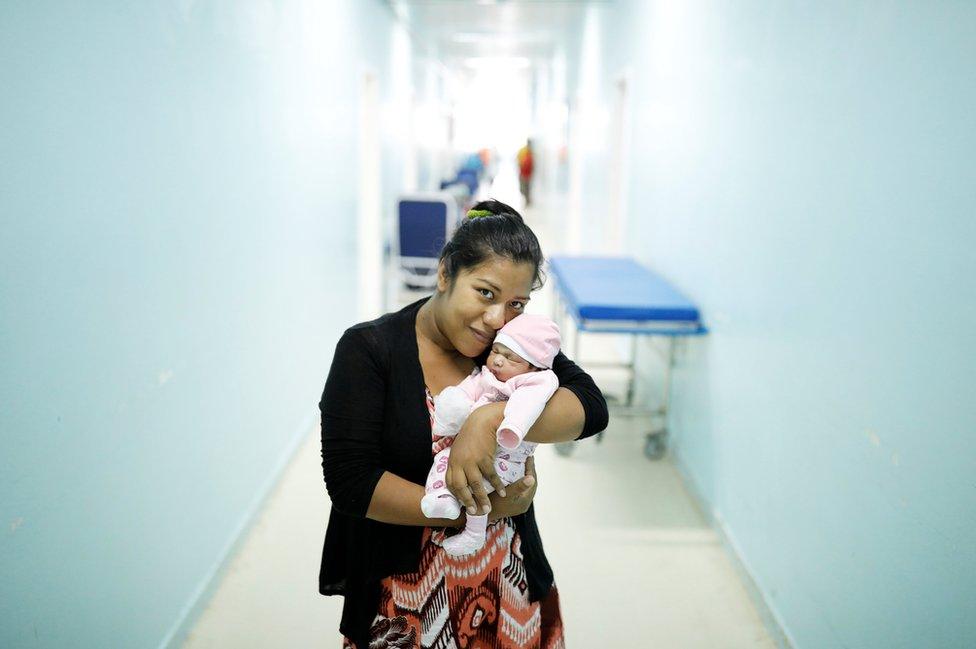
In the first half of 2018, 571 Venezuelan were born here compared with 288 in 2016, according to the Roraima state health department.
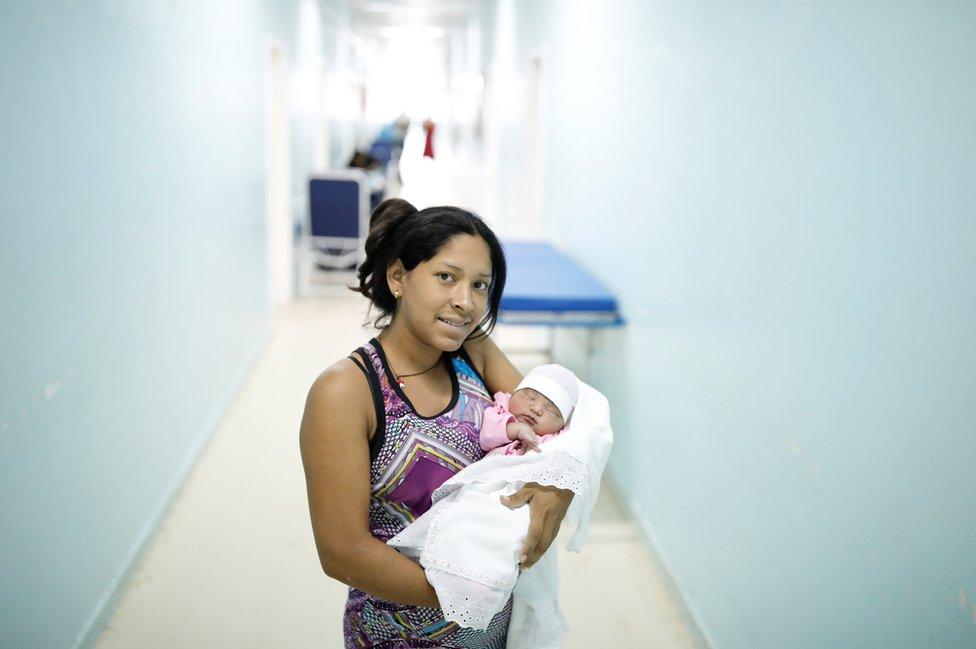
The massive influx of Venezuelans has overburdened social services in Roraima state but expectant mothers like Cecilia say they have no other choice.
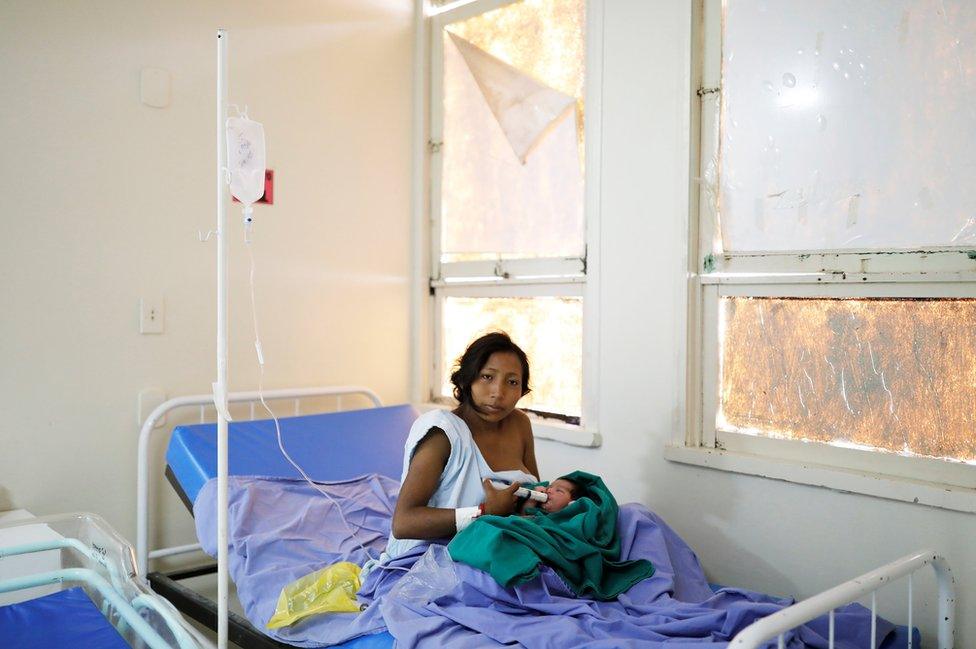
"My baby would have died if I had stayed," says María Teresa López, one of the mothers who has made the trip across the border. "There was no food or medicine, no doctors," she says.
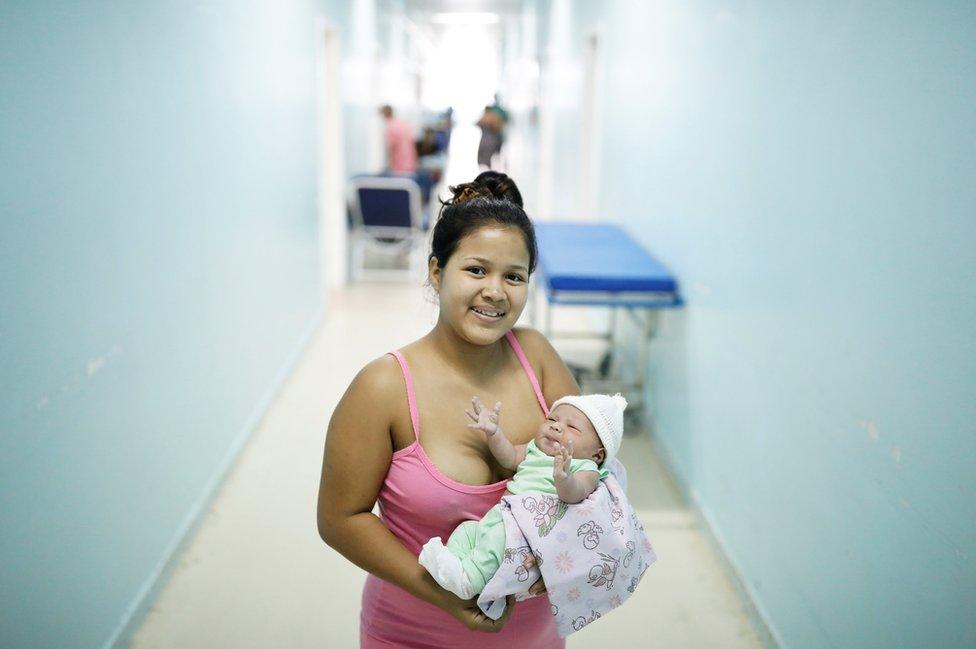
Twenty-one-year-old Lismaris travelled to Boa Vista from Monagas state. Her baby is three days old.
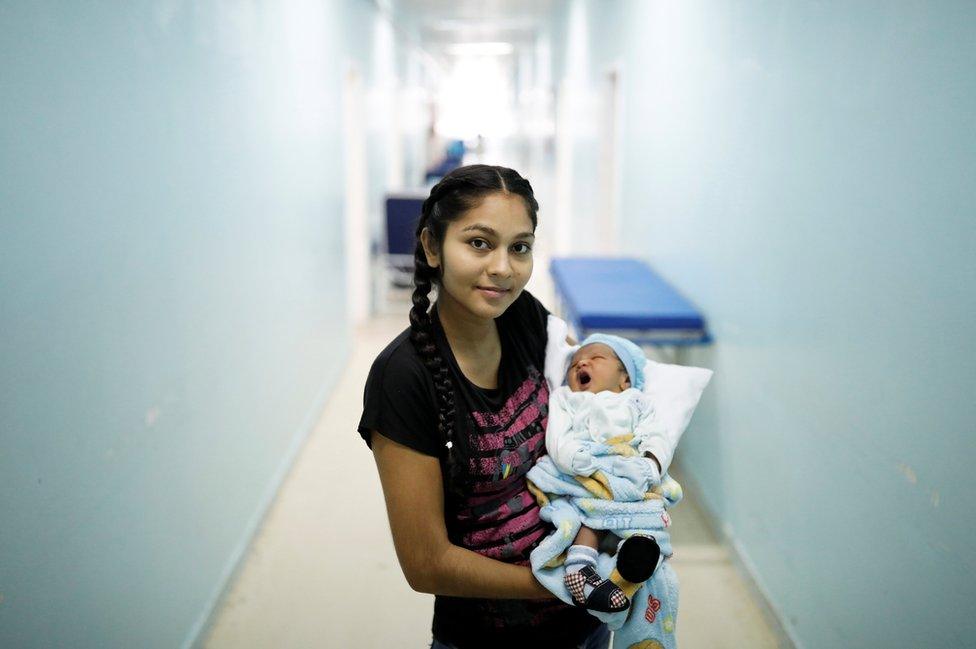
With frequent power cuts and sometimes no running water, many public hospitals have not been able to function in Venezuela.
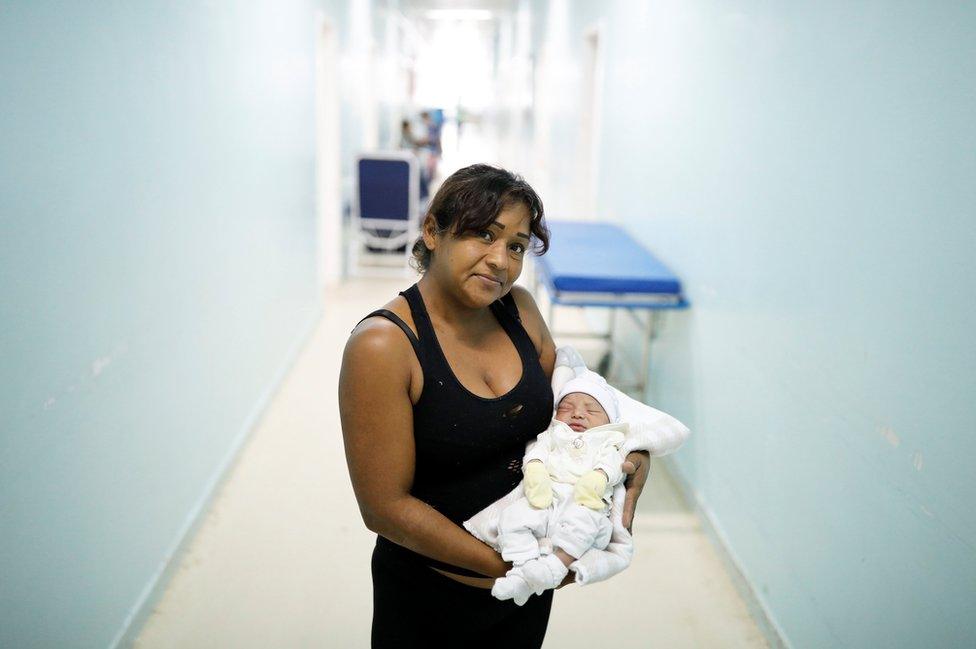
Women like Marisol, 44, from northern Monagas state prefer to travel hundreds of kilometres than risk giving birth under the precarious conditions in many Venezuelan public hospitals.
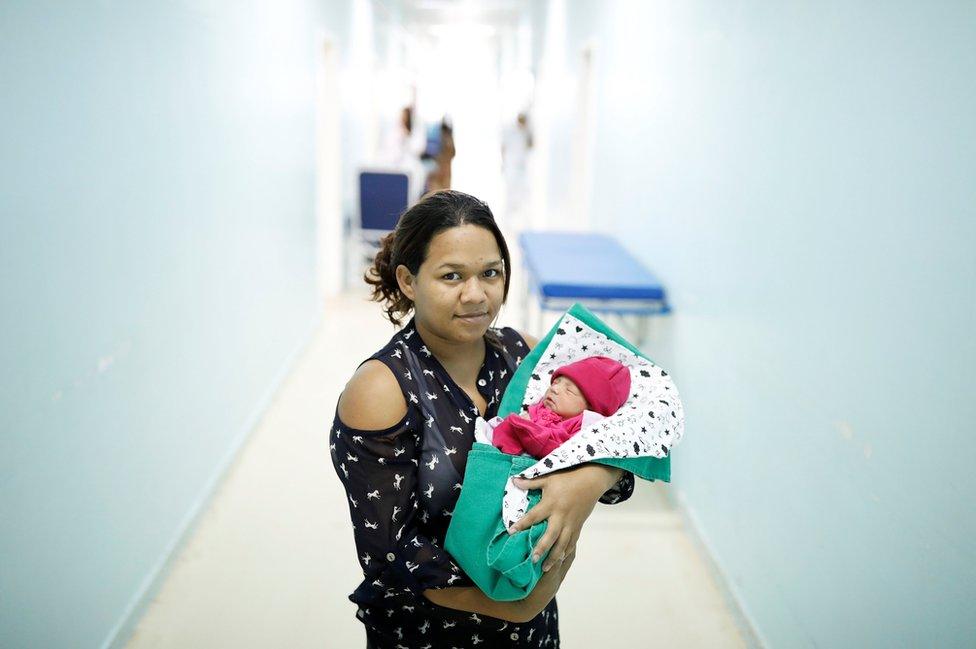
Health workers have been protesting for weeks against the poor conditions in Venezuelan hospitals but to little avail.
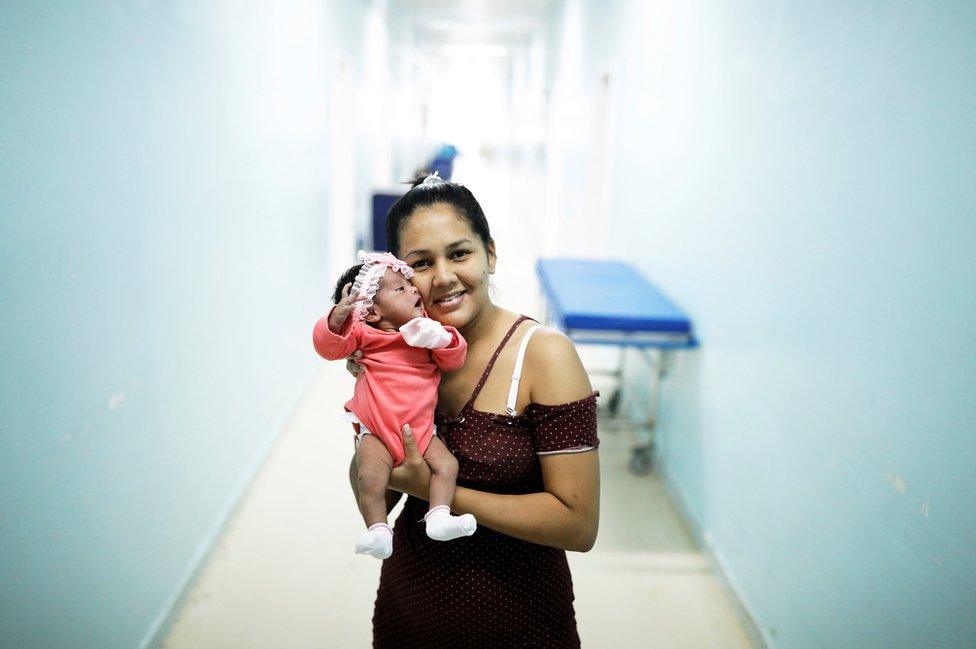
While conditions in Venezuela remain as problematic as they currently are, young women like Irene, 23, will embark on the cross-border journey to ensure their babies get a better start in life.
- Published22 August 2018
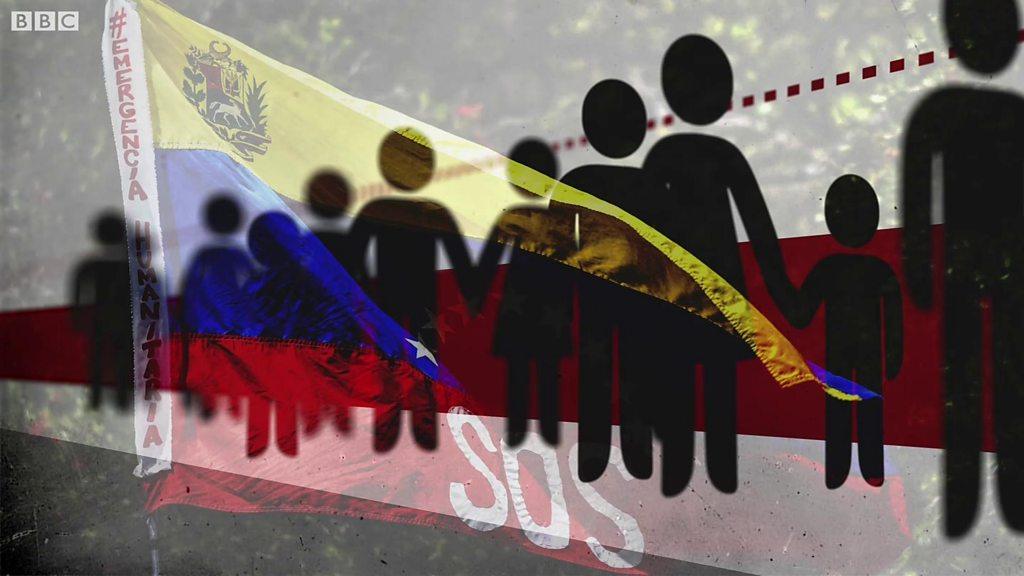
- Published17 May 2018
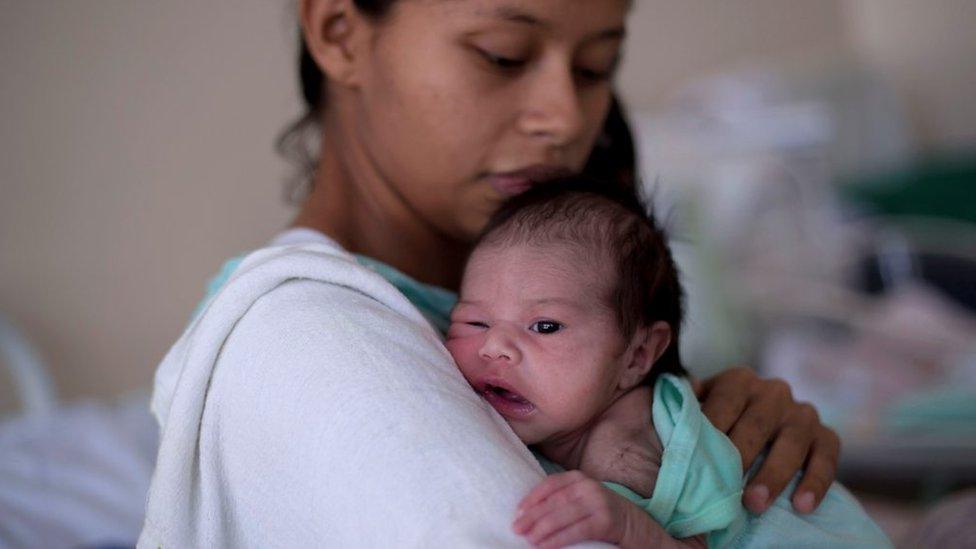
- Published8 May 2018
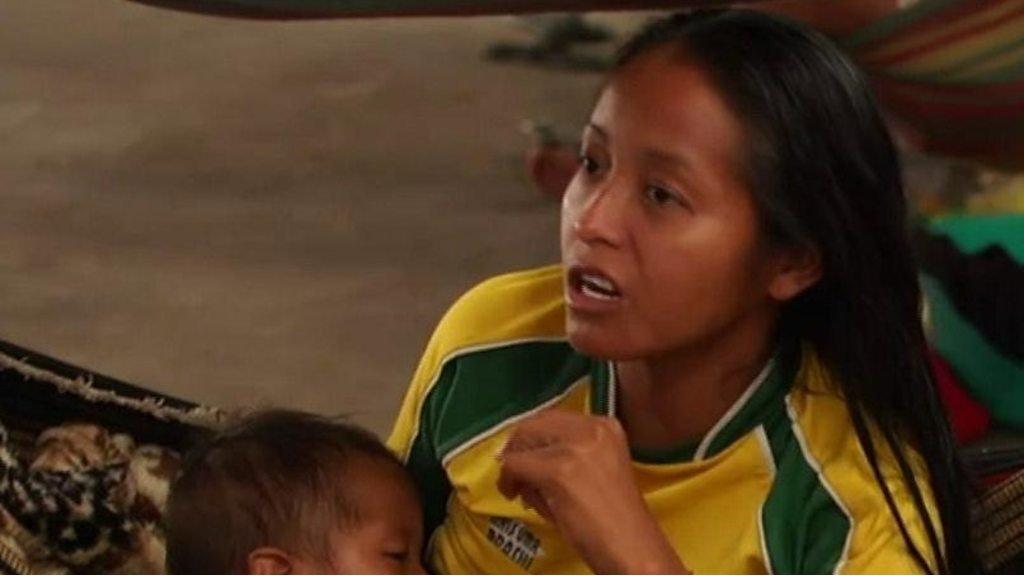
- Published10 August 2017
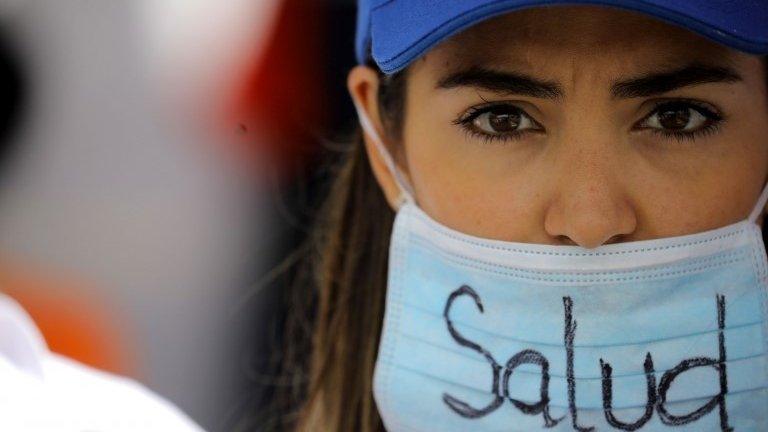
- Published15 June 2017
